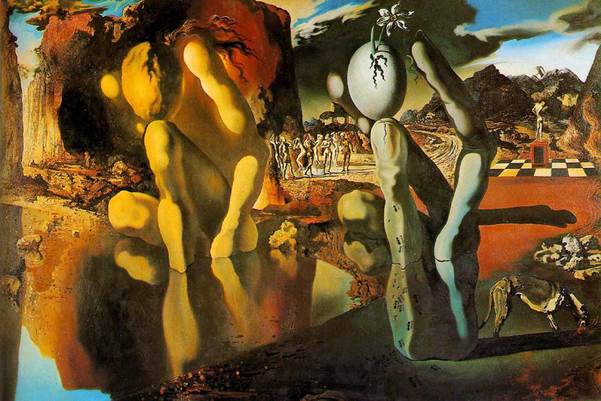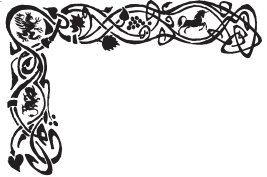“Damn ‘em all. They changed it.. changed it all around.
I just gotta find another way to be alive, that’s all” (The Misfits)
MOBILE
These Outtakes for an alternate future may not be based on Howard’s fantasies, but the ethos of unreality is. The ethos of unreality is the wider idea that you live in the cosmos and an introspective mind is susceptible to its meta-imagery. This is the old idea that the mind and the universe reflect eachother, and is the basis of myth.
REH clearly knew this to be so – intuited it. If you think of any myth-infested place – Chichen Itza, Minoan Knossos – they reflect imagery as the reality of cosmic symbols. The feathered serpent of water and sun whose shadow is seen at equinoxes; the bullgod of lust and fertility; the seagod Neptune (represented by a fresco of playful dolphins).
Realism to us is what we see whereas to ancient societies unreality is the reality because it is introspective and reflects cosmic symbolism. These ancient monuments are places of great atmosphere and power. As noted in CH 7, Howard’s historical tales have this sense of unreal drama, of giant shadows playing over destiny, which gives them their realism. What I’ve been developing is the idea that facts and figures come after the event; introspective drama comes first. The introspective adventurer of Howard’s tales is seeing events at first hand, not facts. The events are full of irrational drama, hence their realism.
Where events have a mythical quality, the introspective content of the irrational drama attains cosmic significance. It’s not rocket science as it depends on characters and scenes. As something of a retro-comics fan, I don’t really care for the way modern comics are always moving so as you often don’t know where you are (or care). No meaningful drama or postures. It’s a way of having not much interesting content and the style can be sort of empty.
Comics are introspective adventures; the desires and ideals of the characters are the real subject. This gives an artist a lot to work with, as with some of the epic works like the lustful desires of the Phoenix and the X-Men’s high ideals (Claremont/ Byrne).

X-Men #112, c Marvel
If we live in a society with no mythical content, then it is not introspective. But style depends on introspective content or it’s empty; the best example is Apple, which is almost no style. Empty style and empty content means facts and figures become the reality. The world you would inhabit then is obsessively inward turning. It’s the world of the Cupertino mothership; of autonomous cars and Musk’s hyperloop; of Walmarts but not cowboys. It’s an ego-trip not a real trip. Sea breezes and horse manure, eco-cultural ambiance that makes living easy.
There are 2 alternate realities; one with a lot of content, one with very little; one with strong style, one with empty style. Comics – classic not modern – are retro-artforms of strong style and introspective drama. The simplicity of dramatic posture is akin to what is found in Renaissance painting. Now, the posture of someone immersed in their mobile is often akin to the left-hand figure in Dali’s Metamorphosis of Narcissus, as the head sort of sinks in rapt attention. Apple’s obsessiveness is the closest you’ll get to a metamorphosis, that’s for sure.

Look, I’m not a luddite, it’s just that there is more to a body than a head. In The Misfits, Monroe’s character is shown horseriding, the body jostling and the muscles taut. The use of calf muscles and arm muscles in steering a horse is obvious. Body posture is a must, particularly in an action drama.
The Misfits seems to be about wildness, and there is an inner fragility to Monroe’s performance as well as unleashings of ferocity (in the screaming display towards end). Modern films have a robotic tendency; Scarlet Johansson in Ghost in the Shell is almost pure style. She’s undeniably cool but the Monroe fragility and hints of uncontrolled wildness are absent. What you could say is there is no inner content and so the style is empty.
The action heroes of yesteryear are introspective, and I think this is what The Misfits represents. There is a strong physicality, a strong style associated with the introspective content. Now, this philosophy is what you might call pre-modern, because the inward-turning obsessiveness of Apple & Co gives you a world of fact, not introspection (remember, Narcissus is staring at his reflection, an image or style.)
The dramatic events in history give you strong narrative style coupled with lyrical content. Often the facts are hard to grasp. There is a book on the ancient Roman Praetorian Guard (Praetorium, Guy de la Bedoyere, Yale, 2017) which is big on brutality.
In the chaos of 238 AD, a year of no fewer than six Emperors, the Praetorians dragged the elderly co-Emperors Balbinus and Pupienus out from the palace. They stripped them naked, and tortured them in the streets. The coup de grace was administered only when news came that a loyal German bodyguard was on its way to attempt rescue. (DT review).

Claudius proclaimed Emperor (unknown artist)
It’s astonishing stuff, and makes you realize Rome was never a tyranny; Caligula was killed by his loyal guards who then proclaimed Claudius Emperor. It was a civil order; a brutal one, but civil. REH is known for his antipathy to Rome, but I still think the brutality was not his bane; it was the civility.
Howard is muscular to a tee, this is the language he understands. When Conan is nailed to a cross and cut-down (A Witch Shall be Born), only his corded neck-muscles save him from severe injury. A society that becomes too civil has the tyranny of civility because there is no wild element to deploy – no Praetorian Guard to hew down the Emperors.
Apple & Co will tyrannize us with civility, and that is as close to a robotic metamorphosis as you will ever see.
TAGS CH 9
The Big Pretence, Wonder Woman’s lasso of truth, Apple’s Cupertino mothership blows up, light-hearted big-hearted musicals, prairie gold-dust







